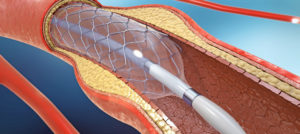Human Health
What we believe:
Knowledge is power
You can make better choices for managing your health when you gain a basic understanding of the pros and cons of treatment options. We believe that simple, inexpensive options are often the best – but may be neglected or overlooked by researchers, pharmaceutical companies and care providers because of a lack of profit potential and investment.
Our goal:
Improving health with affordable and accessible options
The Parsemus Foundation’s goal is to advance innovative and neglected medical research. We focus on supporting small proof-of-concept studies and then pursuing press coverage of the results, so that the advances change treatment practice rather than disappearing into the scientific literature. Many of the studies we support involve low-cost approaches that are not under patent. From support for new male contraceptives to research on the use of existing medicines to treat COVID-19, the Parsemus Foundation aims to improve human health with affordable and accessible options.
This section of our website provides information on specific medical topics, and includes references and educational links for further study. You’ll also find information on select past projects focused on areas we are no longer pursuing.
Human Health Projects

Vasalgel Male Contraceptive
Vasalgel is a male contraceptive launched by Parsemus Foundation to fill the need for a non-hormonal, long-acting, reversible male method.

PEMF Therapy for Enlarged Prostate
Noninvasive treatment using PEMF (pulsed electromagnetic field) therapy can reduce the symptoms of BPH (benign prostatic hyperplasia) and the size of the prostate.

Alzheimer’s Disease Prevention
An ongoing clinical trial in Australia will lead to better understanding of the influence of testosterone and DHA on Alzheimer’s disease.

Hearing, hearing aids, and dementia
An ongoing clinical trial in Australia will lead to better understanding of the influence of testosterone and DHA on Alzheimer’s disease.

Iron Deficiency
Iron deficiency and anemia are common and can result in significant negative health impacts. Intravenous iron offers a rapid treatment option.

Non-Specific Effects of Vaccines
Iron deficiency and anemia are common and can result in significant negative health impacts. Intravenous iron offers a rapid treatment option.

Male Contraceptive Research
Resources and information to stay up-to-date on efforts to develop new options for male contraception.

Breast Cancer Prevention
Intraductal methods can provide less invasive options for treatment of ductal carcinoma in situ (DCIS), the most common noninvasive lesion of the breast.

Overused Medical Procedures
Some doctors still prescribe unnecessary medical procedures and medications. These resources can help you make informed medical decisions.


Hormones for Menopause
Menopause hormone therapy is an underutilized and misunderstood treatment for menopause symptoms. Learn the facts for informed decisions.

Angioplasty: Ending Inappropriate Use
Angioplasty and stenting continue to be used in stable coronary artery disease, even though trials have shown that they add no significant survival benefit.
Human Health News

Nanotechnology targets cancer through breast ducts
Breast cancer remains a significant health challenge worldwide. While advancements in treatment have improved survival rates, the search for more targeted and effective therapies continues. Nanotechnology-based intraductal drug delivery aims to revolutionize local treatment and prevention of breast cancer by delivering nanocarriers with therapeutic agents directly to the site of the disease.

Vision loss and dementia risk
A recent study found that up to 19% of dementia cases may be attributable to impaired vision. The study, published in JAMA Ophthalmology, showed that vision loss may have even more of an impact on the risk of dementia than previously thought. Hearing loss is also considered a modifiable risk factor for dementia, supporting the notion that sensory engagement is critical for brain health.

Blood tests predict cardiovascular disease
Cardiovascular disease is the leading cause of death worldwide. Heart attacks, strokes, and other heart-related conditions claim millions of lives each year — more than cancer. In the U.S., cardiovascular disease kills someone every 33 seconds, and is responsible for more than 20% of all deaths, according to the Centers for Disease Control. But what if a simple blood test could help predict heart disease decades in advance?

Regional variation in Alzheimer’s and dementia diagnoses
Different parts of the United States have different rates of Alzheimer’s diagnoses. Scientists from the University of Michigan determined that regional variation was due to risk factors related to the specific population as well as the intensity of new cases diagnosed.

Melatonin shows promise for Alzheimer’s treatment
Recent research has spotlighted melatonin as a potential ally in the fight against Alzheimer’s disease. Scientists from Zhejiang University and Uppsala University published a comprehensive review in the journal Molecular Psychiatry in August 2024, exploring how this natural hormone might protect brain health.

Study highlights growing demand for male contraceptives
A groundbreaking study reveals a strong demand for new male contraceptives worldwide. Researchers surveyed over 18,000 men and 9,000 women across seven countries, uncovering widespread interest in male birth control options. The findings suggest male contraceptives could transform family planning and promote gender equity in reproductive health.

Nanotechnology targets cancer through breast ducts
Breast cancer remains a significant health challenge worldwide. While advancements in treatment have improved survival rates, the search for more targeted and effective therapies continues. Nanotechnology-based intraductal drug delivery aims to revolutionize local treatment and prevention of breast cancer by delivering nanocarriers with therapeutic agents directly to the site of the disease.

Vision loss and dementia risk
A recent study found that up to 19% of dementia cases may be attributable to impaired vision. The study, published in JAMA Ophthalmology, showed that vision loss may have even more of an impact on the risk of dementia than previously thought. Hearing loss is also considered a modifiable risk factor for dementia, supporting the notion that sensory engagement is critical for brain health.

Blood tests predict cardiovascular disease
Cardiovascular disease is the leading cause of death worldwide. Heart attacks, strokes, and other heart-related conditions claim millions of lives each year — more than cancer. In the U.S., cardiovascular disease kills someone every 33 seconds, and is responsible for more than 20% of all deaths, according to the Centers for Disease Control. But what if a simple blood test could help predict heart disease decades in advance?

Regional variation in Alzheimer’s and dementia diagnoses
Different parts of the United States have different rates of Alzheimer’s diagnoses. Scientists from the University of Michigan determined that regional variation was due to risk factors related to the specific population as well as the intensity of new cases diagnosed.


